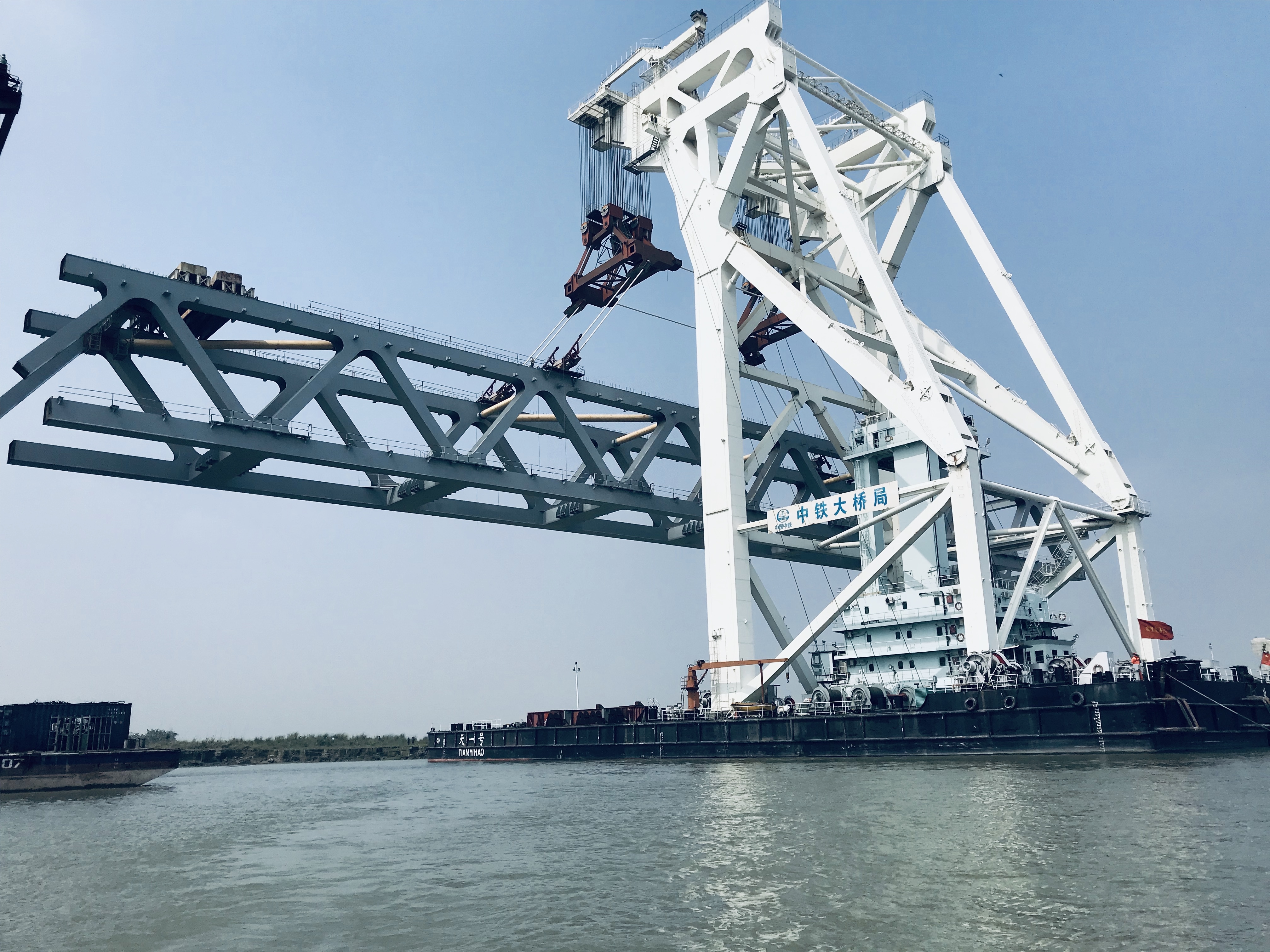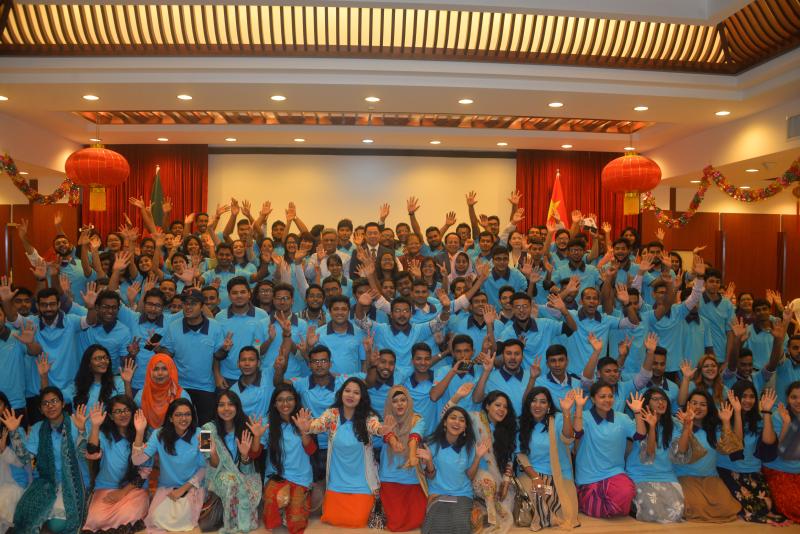BRI developments a boon to Bangladesh
- By Md Enamul Hassan
 0 Comment(s)
0 Comment(s) Print
Print E-mail China.org.cn, March 16, 2019
E-mail China.org.cn, March 16, 2019

Bangladesh historically enjoys good ties with China. The beginning of their relations dates back more than 2,000 years and was brought about primarily by the Silk Road. Both countries have long shared deep political, economic and people-to-people ties that have transformed in recent years into their current strategic partnership.
China is Bangladesh's largest trade partner and is also a major development partner in the building of infrastructure such as roads, highways, railways, airports and power plants. Bangladesh is also one of the major recipients of China's foreign aid.
In addition, Bangladesh is geographically located in a strategically important position that is considered a bridge between South and South East Asia. This area has grown increasingly important to China vis-a-vis its efforts to realize the Belt and Road Initiative (BRI) that Bangladesh has endorsed and been reaping dividends since 2016.
Against such a backdrop, any decisive and major developments in any of the two countries can easily influence each other. The second session of the 13th National People's Congress (NPC) and the second session of the 13th National Committee of the Chinese People's Political Consultative Conference (CPPCC) , briefly called "Two Sessions," reaffirmed the importance of this strategic relationship. The commitments by the Chinese leadership in the sessions to step up global cooperation under the BRI have come as a big boon for Bangladesh as one of the important partners of the initiative.
Bangladesh is determined and has made significant strides towards becoming a Middle Income Country (MIC) by 2021 to mark the 50th anniversary of its independence. However, to reach this goal, the South Asian nation has to raise and maintain its gross domestic product (GDP) growth rate to 7.5-8 percent every year (up from the current 7 percent). The BRI is a timely and essential tool for Bangladesh to achieve that.

Economists are of the view that to ensure the optimum rate of its GDP growth, Bangladesh must bring in more investment, boost exports and increase remittance inflows, which are major driving forces of its current economy. The BRI has a lot to contribute in these three areas.
To increase its investment to the optimum level, Bangladesh must improve its infrastructure, which incidentally is also one of the major components of the BRI. When it comes to boosting exports, the same holds true, bearing in mind that without adequate infrastructure it is impossible to diversify exports and explore new markets for them. In this regard, the BRI is a blessing for Bangladesh as it requires more than US$24 billion in infrastructure spending every year to become an MIC.
As part of infrastructural improvement, Bangladesh also requires upgrades in its service providing systems and Information Communication Technology (ICT) is the best option for it. Though the South Asian nation has progressed a long way in digitization under the slogan "Digital Bangladesh," it still has a lot to learn from China, especially from its experience as the second largest economy of the world.
As China is now more determined to promote internet connectivity and collaboration on building technology transfer platforms among BRI countries, Bangladesh can take this opportunity to forge meaningful and multi-faceted cooperation with the East Asian nation and its BRI partners in the future.
Another benefit of the initiative is that it opens the doors for Bangladesh to explore alternative markets for its export goods as the BRI will establish more connectivity among Asian nations. At present, Western countries are the main destinations for Bangladeshi exports.

Bangladesh has to produce high quality professionals and workers to boost remittances from abroad. This is made more possible under the BRI cooperation, which will help more Bangladeshi students receive world-class education and training in China as well as get jobs in BRI partner countries.
To ensure sustainable development, Bangladesh must create better jobs for its youths especially since more than 2 million of them enter the job market every year. The BRI can be a big boon to these aspirants as it can create a huge number of jobs with its major projects at home and abroad.
The BRI can bring more opportunities and privileges to boost the economy of Bangladesh. This will result in the overall advancement of the country and its people as the economic betterment will help to improve other indicators of the human development including health and education. China's "Two Sessions" have really brought some good news for Bangladesh under the cover of the BRI this year.
The author is the diplomatic correspondent with the Daily Sun, Bangladesh.
Opinion articles reflect the views of their authors only, not necessarily those of China.org.cn.
If you would like to contribute and have specific expertise, please contact us at opinion@china.org.cn.






Go to Forum >>0 Comment(s)